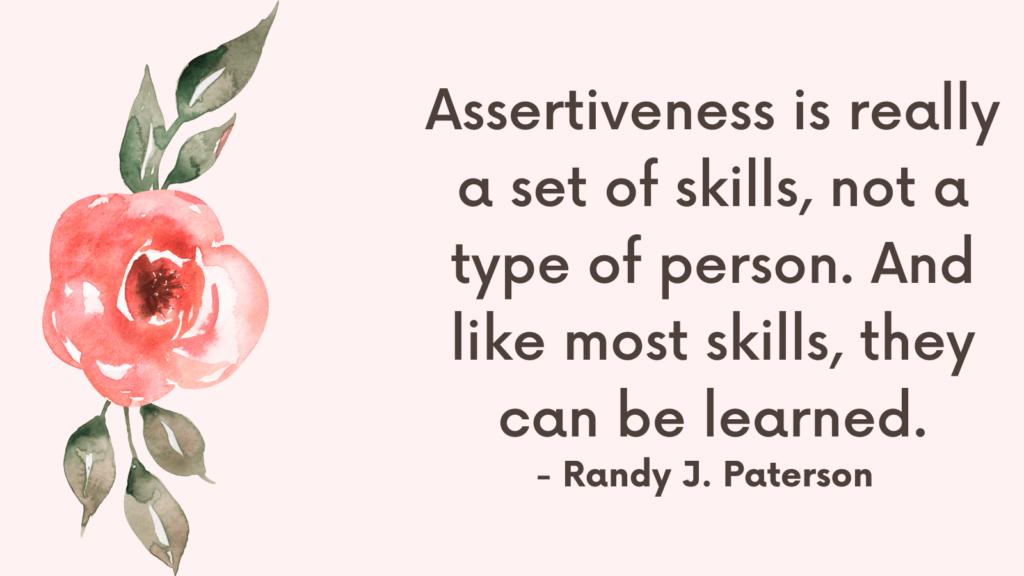In this post, you’re going to find out all about the danger of being a people pleaser.
Who Is The People Pleaser?
The term “people pleaser” is often used to describe individuals who have an excessive desire to please others, often at the expense of their own needs and well-being.
People pleasers typically prioritize the approval and acceptance of others, often going to great lengths to avoid conflict, criticism, or rejection.
This behavioral pattern can stem from various underlying factors, including low self-esteem, fear of abandonment, and a need for external validation.
Characteristics of people pleasers may include:
1. Overcommitment: People pleasers often struggle to say “no” and may find themselves overextending their time and resources in an effort to accommodate others’ requests and expectations.
2. Avoidance of Conflict: Individuals who exhibit people-pleasing tendencies may go to great lengths to avoid conflict or disagreement, even if it means suppressing their own opinions or preferences.
3. Seeking Approval: People pleasers often seek approval and validation from others as a means of bolstering their own sense of self-worth, leading them to prioritize others’ needs over their own.
4. Difficulty Setting Boundaries: Establishing and maintaining personal boundaries can be challenging for people pleasers, as they may fear upsetting or disappointing others by asserting their own needs.
5. Emotional Distress: The need to constantly cater to others’ desires and expectations can contribute to high levels of stress, anxiety, and emotional exhaustion for people pleasers.
Related: Codependent vs People-Pleaser
The Danger of Being a People Pleaser
People-pleasing behavior can have significant negative implications for individuals’ mental and emotional well-being, interpersonal relationships, and overall sense of self.
1. Low Self-Esteem and Identity Erosion
People pleasers often derive their sense of self-worth from external validation and approval, leading to a fragile and contingent self-esteem.
Constantly seeking affirmation from others can erode a person’s authentic identity, as their self-concept becomes intertwined with meeting others’ expectations and desires.
2. Emotional Exhaustion and Stress
The persistent effort to accommodate others while neglecting one’s own needs can lead to chronic stress and emotional exhaustion.
People pleasers may experience heightened anxiety, constant worry about disappointing others, and a pervasive feeling of never doing enough to satisfy those around them.
3. Resentment and Suppressing Authenticity
Over time, people pleasers may experience growing resentment towards those they aim to please, as well as towards themselves.
By suppressing their genuine thoughts, feelings, and desires in favor of others’ preferences, individuals may sacrifice their authenticity, leading to inner conflict and a sense of profound disconnection from their true selves.
Related: People Pleaser Quiz (+Top 21 Proven Ways to Stop People Pleasing)
4. Unhealthy Relationship Dynamics
People-pleasing behavior can contribute to imbalanced and unhealthy relationship dynamics.
In personal and professional settings, this pattern may foster codependency, enabling others to take advantage of the people pleaser’s willingness to prioritize their needs over their own.
5. Difficulty Establishing Boundaries
People pleasers often struggle to set and maintain healthy boundaries in relationships, leading to a lack of assertiveness and self-advocacy.
This dynamic can perpetuate the cycle of unfulfilling interactions and reinforce the habit of subordinating one’s own needs in favor of others’.
6. Approval-Seeking Patterns
Individuals who consistently engage in people-pleasing behaviors risk perpetuating a pattern of seeking external approval rather than fostering genuine and reciprocal connections.
This can result in shallow or inauthentic relationships built on the foundation of meeting others’ expectations instead of mutual respect and understanding.
7. Limiting Personal Growth and Fulfillment
By consistently subjugating their own aspirations and authentic expression, people pleasers may stifle their personal growth and limit their potential for fulfillment.
This can manifest in missed opportunities, unrealized ambitions, and a pervasive sense of unfulfilled potential.
Related: 10 Signs You’re Dating A People Pleaser
How to Stop Being a People Pleaser?
Here are some evidence-based strategies that can support individuals in overcoming this pattern and reclaiming their agency and well-being:
1. Self-Exploration and Awareness
Self-awareness is the first step in addressing people-pleasing behavior.
Encouraging individuals to reflect on their patterns of prioritizing others’ needs over their own can lay the groundwork for meaningful change.
This may involve journaling, self-assessment exercises, and seeking feedback from trusted individuals to gain insight into their relational dynamics.
2. Understanding Triggers and Underlying Beliefs
Exploring the triggers and underlying beliefs that drive people-pleasing behavior is pivotal.
Individuals can work with a therapist to identify the origins of their need for external validation and approval.
By uncovering deep-seated beliefs about self-worth, fear of rejection, or past experiences that have shaped their behavior, individuals can begin to challenge and reframe these beliefs.
3. Developing Assertiveness Skills
Learning to assert one’s needs and preferences is crucial in overcoming people-pleasing behavior.
Through assertiveness training, individuals can practice communicating their boundaries, saying “no” when necessary, and expressing their authentic thoughts and feelings in a clear and respectful manner.
Role-playing exercises and real-life scenarios can help build confidence in asserting oneself.
Related: Top 7 Signs People Pleasing Is a Trauma Response
4. Setting and Maintaining Boundaries
Establishing healthy boundaries is a fundamental part of breaking free from people-pleasing habits.
This involves identifying personal limits and communicating them to others.
Individuals can benefit from developing a clear understanding of their physical, emotional, and social boundaries and implementing strategies to maintain them in various relationships.
5. Learning to Prioritize Self-Care
Encouraging individuals to prioritize self-care is essential in shifting their focus from external approval to internal well-being.
This may include engaging in activities that promote relaxation, mindfulness, and personal fulfillment.
By nurturing their own needs, individuals can cultivate a stronger sense of self and resilience.
6. Challenging Perfectionism and Overcommitment
Addressing perfectionistic tendencies and the urge to overcommit is pivotal in combating people-pleasing behavior.
Individuals can benefit from learning to set realistic expectations for themselves and others, recognizing that it’s okay to prioritize their own well-being and limitations without feeling guilty.
7. Practicing Self-Validation and Self-Expression
Encouraging individuals to validate their own thoughts, emotions, and achievements can foster a sense of internal affirmation.
Additionally, promoting opportunities for creative self-expression—such as through art, writing, or other hobbies—can empower individuals to reconnect with their authentic selves and express their uniqueness.
Related: Best 35 Affirmations For People Pleasing

Conclusion
Breaking free from people-pleasing tendencies is a transformative journey that requires compassion, self-reflection, and intentional practice.
By integrating these evidence-based strategies into their lives, individuals can gradually reclaim their sense of agency, nurture authentic and fulfilling relationships, and cultivate a greater sense of self-worth independent of external validation.



